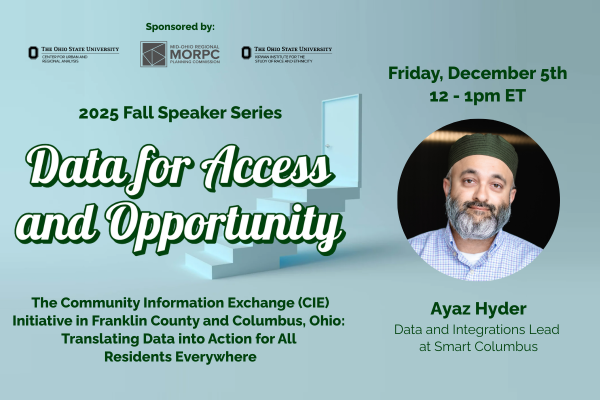
“Data without action is wastefulness, and action without data is foolishness.” This highlights some of the pitfalls of not translating data into action and acting with no or limited data. As a result, data may or may not be helpful, useful, or practical for improving human health and community wellbeing. This talk focuses on practice-oriented data analytics and modeling in the health and human services sector through the Community Information Exchange Initiative. It also discusses the critical role of education and training in translational data analytics and data/model literacy in the health and human service workforce. Lastly, there’s a brief discussion on interdisciplinary research methods for translating data into action and their application in a community-wide technology and change management initiative in Franklin County and Columbus, Ohio.
Dr. Ayaz Hyder is an Associate Professor in the College of Public Health and Core Faculty in the Translational Data Analytics Institute at The Ohio State University. Dr. Hyder received his Ph.D. in modeling pandemics and health disparities at McGill University and completed postdoctoral training at Yale University and the University of Toronto. He leads the Computational Epidemiology Lab at OSU, which develops and translates data analytics tools and computational models into public health practice. He leverages systems science and community engagement methods to address complex public health challenges. His work is funded by NSF, NIH, CDC, and foundations. Recently, Dr. Hyder partnered with health departments to work on various COVID-19 response efforts, including surveillance, modeling, and mapping vaccine access. Dr. Hyder is currently on a leave of absence from Ohio State to lead the data and integration efforts for the Community Information Exchange Initiative at Smart Columbus.
The Data for Access and Opportunity fall webinar series is co-sponsored by the Center for Urban and Regional Analysis, the Kirwan Institute for the Study of Race and Ethnicity, and the Mid-Ohio Regional Planning Commission.
